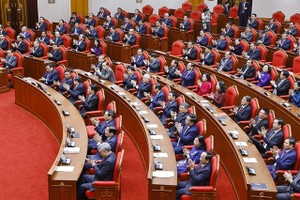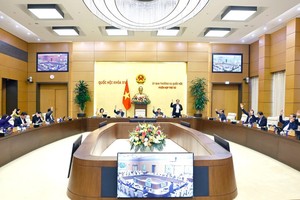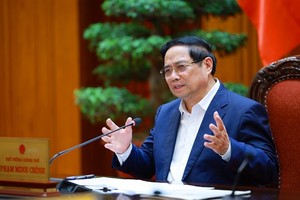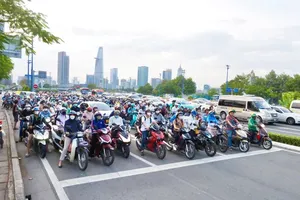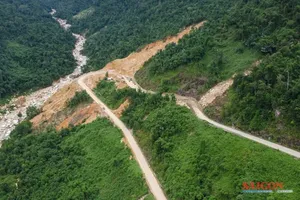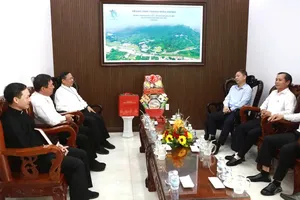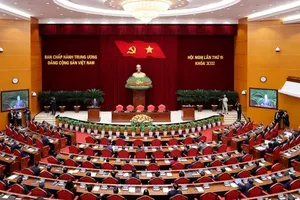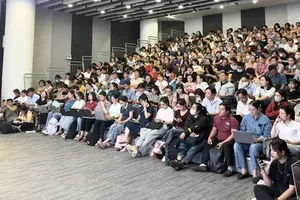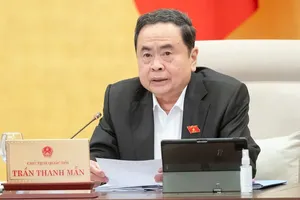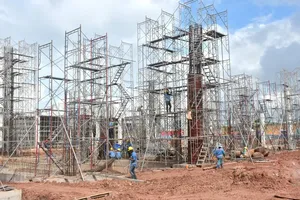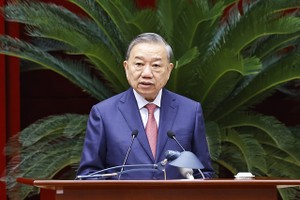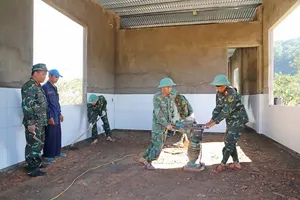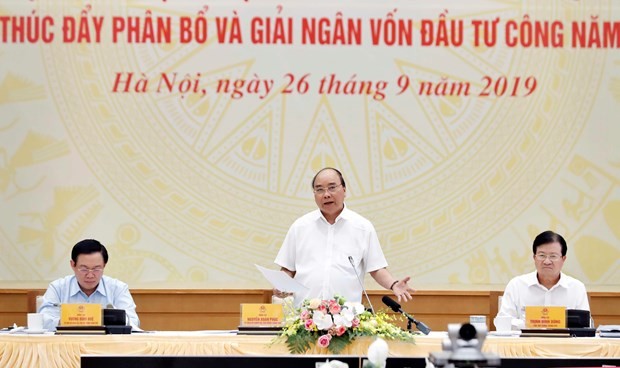
He made the request while chairing a teleconference on September 26 that was attended by officials of all ministries, sectors and 63 provincial-level localities.
According to the Ministry of Planning and Investment (MPI), the allocation and disbursement of public investment capital is a “dark point” in the bright panorama of the economy.
Disbursement of public investment capital in the first nine months of 2019 met only 45.17 percent of the yearly target set by the National Assembly and 49.14 percent of the target set by the PM.
There are 31 ministries and central agencies and 19 localities with the disbursement rates under 50 percent of their assigned figures. Among them, 17 ministries and agencies and one locality only met under 30 percent of the target.
The MPI attributed the snail-pace disbursement partly to some institutional obstacles.
It noted there remain much confusion in the implementation of the laws on land, construction, bidding and natural resources protection; site clearance is still time-consuming; and the preparation for projects using public investment capital remains problematic. Besides, the provision of counterpart funds for some projects did not meet schedule, subsequently affecting the disbursement of foreign capital, the ministry said.
Addressing the conference, PM Phuc said public investment plays a major role in socio-economic development, especially the building of important infrastructure facilities. It accounts for 10.7 percent of the total GDP and about 32 percent of total investment in society in 2019.
However, the sluggish disbursement of public investment capital over the past nearly one decade has created a bottleneck in the economy, he noted.
Pointing out consequences of the slow disbursement, he said it will affect economic expansion since capital is one of the important factors of GDP growth.
Additionally, as public investment capital is usually among the resources of big projects, slow disbursement will also decelerate the mobilization of private and foreign parties’ reciprocal capital, which subsequently affects the prestige of Vietnam and undermines investors and donors’ trust in the country.
The snail-pace disbursement will also lead to considerable wastefulness because while the capital is not disbursed, the Government still has to pay the cost of capital, the PM noted, adding that businesses and investors will also have to face floated expenses and debts, fewer jobs, and eroded prestige.
The Government leader demanded all ministries, sectors and localities speed up the allocation of public investment capital, an urgent key task from now through 2020 – the final year of the medium-term public investment plan for 2016-2020.
He said ministers, heads of sectors and leaders of localities must take full responsibility for this task, asking them to enhance coordination in the settlement of hindrances to the implementation of projects using public funds.
Assigning tasks to ministries, PM Phuc showed his support for the establishment of a special working group for monitoring and promoting construction projects funded with public capital.
He also requested ministries, central agencies and localities to clarify the responsibility of collectives and individuals who hamper the disbursement progress.
According to the Ministry of Planning and Investment (MPI), the allocation and disbursement of public investment capital is a “dark point” in the bright panorama of the economy.
Disbursement of public investment capital in the first nine months of 2019 met only 45.17 percent of the yearly target set by the National Assembly and 49.14 percent of the target set by the PM.
There are 31 ministries and central agencies and 19 localities with the disbursement rates under 50 percent of their assigned figures. Among them, 17 ministries and agencies and one locality only met under 30 percent of the target.
The MPI attributed the snail-pace disbursement partly to some institutional obstacles.
It noted there remain much confusion in the implementation of the laws on land, construction, bidding and natural resources protection; site clearance is still time-consuming; and the preparation for projects using public investment capital remains problematic. Besides, the provision of counterpart funds for some projects did not meet schedule, subsequently affecting the disbursement of foreign capital, the ministry said.
Addressing the conference, PM Phuc said public investment plays a major role in socio-economic development, especially the building of important infrastructure facilities. It accounts for 10.7 percent of the total GDP and about 32 percent of total investment in society in 2019.
However, the sluggish disbursement of public investment capital over the past nearly one decade has created a bottleneck in the economy, he noted.
Pointing out consequences of the slow disbursement, he said it will affect economic expansion since capital is one of the important factors of GDP growth.
Additionally, as public investment capital is usually among the resources of big projects, slow disbursement will also decelerate the mobilization of private and foreign parties’ reciprocal capital, which subsequently affects the prestige of Vietnam and undermines investors and donors’ trust in the country.
The snail-pace disbursement will also lead to considerable wastefulness because while the capital is not disbursed, the Government still has to pay the cost of capital, the PM noted, adding that businesses and investors will also have to face floated expenses and debts, fewer jobs, and eroded prestige.
The Government leader demanded all ministries, sectors and localities speed up the allocation of public investment capital, an urgent key task from now through 2020 – the final year of the medium-term public investment plan for 2016-2020.
He said ministers, heads of sectors and leaders of localities must take full responsibility for this task, asking them to enhance coordination in the settlement of hindrances to the implementation of projects using public funds.
Assigning tasks to ministries, PM Phuc showed his support for the establishment of a special working group for monitoring and promoting construction projects funded with public capital.
He also requested ministries, central agencies and localities to clarify the responsibility of collectives and individuals who hamper the disbursement progress.
